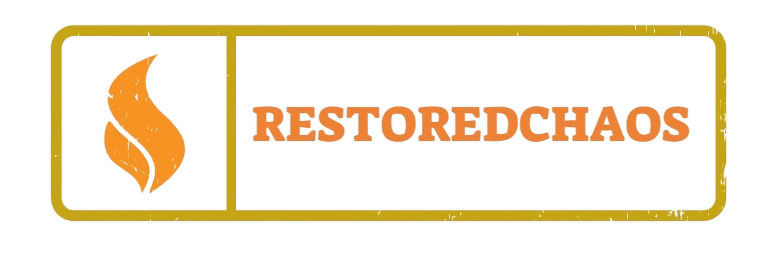In our fast-paced world, it’s easy to move through life on autopilot—navigating work, relationships, and daily responsibilities without pausing to ask ourselves the deeper questions. But the act of self-reflection invites us to hit the brakes, to turn inward and listen closely to our own thoughts, feelings, and inner wisdom. It’s not just a contemplative practice—it’s a pathway to clarity, authenticity, and meaningful personal growth.
What Is Self-Reflection?
At its core, self-reflection is the deliberate process of examining your inner world—your emotions, thoughts, decisions, and behaviors. It’s a way to slow down and view yourself from a thoughtful, objective perspective. Rather than judging or analyzing with a critical eye, self-reflection encourages curiosity and compassionate understanding.
Whether you journal, meditate, talk with someone you trust, or simply take a quiet walk, self-reflection is about creating the space to notice what’s really happening beneath the surface. It allows you to discover what drives you, recognize patterns in your behavior, and align your actions with your values.

Why Self-Reflection Matters
Self-reflection isn’t a luxury reserved for monks or philosophers—it’s a necessary tool for anyone seeking a more intentional life. Here are some of the key benefits:
- Greater self-awareness: Reflecting regularly helps you identify emotional triggers, thought patterns, and reactions, giving you a clearer understanding of how you operate.
- Personal growth: When you take the time to examine your experiences, you uncover lessons that lead to genuine development and change.
- Improved decision-making: With a better sense of your goals and values, your choices become more aligned and thoughtful.
- Emotional intelligence: Self-reflection deepens your empathy and emotional regulation, allowing you to better relate to yourself and others.
- Stress reduction: Creating moments of stillness allows you to process emotions and experiences, easing anxiety and bringing peace of mind.
- Confidence and self-compassion: As you get to know yourself on a deeper level, you begin to trust your instincts and accept your imperfections with kindness.
Four Powerful Ways to Practice Self-Reflection
Self-reflection isn’t one-size-fits-all. The key is to find a practice that resonates with you and feels sustainable. Here are four proven techniques:
1. Journaling
Putting pen to paper (or fingers to keyboard) can help bring clarity to your thoughts. Try setting aside 10–15 minutes a day to write freely, without editing or judgment. You might respond to a prompt like, “What did I learn about myself today?” or “What’s been weighing on my heart lately?”
Prompts can spark deeper insight. Write a letter to your past self, list your core values, or reflect on a recent challenge. Journaling is a safe container to process emotions and track growth over time.
2. Meditation
Meditation helps you become the observer of your inner world. You don’t need to clear your mind of all thoughts—rather, notice them with curiosity and let them pass without attachment. Focus on your breath, try a guided meditation, or explore loving-kindness practices where you send compassion to yourself and others.
Even just five minutes of mindfulness each day can make a significant difference in your ability to tune in and reflect.
3. Conversations with Trusted People
Sometimes, we gain clarity by voicing our thoughts to someone who listens without judgment. Whether it’s a mentor, therapist, or close friend, talking about your experiences can shed light on patterns or blind spots you may not see alone. Choose someone who will ask thoughtful questions and reflect your insights back to you.
4. Intentional Solitude
Creating quiet space in your routine—whether through nature walks, silent mornings, or reflective evenings—can help you hear your inner voice more clearly. Schedule time just for yourself, free from screens or distractions, and use it to simply be with your thoughts.

Common Challenges—and How to Overcome Them
Let’s face it: turning inward isn’t always easy. Resistance is part of the process. Here are some common roadblocks and tips to move through them:
- Lack of time: Even five minutes a day is enough to start. Pair reflection with something you already do—like journaling after brushing your teeth or meditating before bed.
- Fear of uncomfortable emotions: It’s normal to feel vulnerable during self-reflection. Practice self-compassion, reminding yourself that facing discomfort is a courageous and necessary step toward healing.
- Inner criticism: The voice of the inner critic can be loud. When judgment shows up, try writing from a place of curiosity instead of perfectionism. Ask, “What can I learn from this?”
- Not knowing where to start: Begin with simple questions. “How am I feeling right now?” or “What do I need most today?” can open the door to deeper exploration.
Consistency, patience, and kindness toward yourself are key. Self-reflection isn’t about fixing yourself—it’s about understanding yourself.
A Tool for Deeper Insight: Self-Reflection Questions
One of the most practical ways to deepen your self-reflection is by asking powerful, open-ended questions. With over 300 questions available, you can explore every corner of your inner life—from your beliefs and relationships to your goals and fears.
Here are a few examples to get started:
- What does success mean to me personally?
- In what areas of my life do I feel most fulfilled?
- When was the last time I felt truly at peace?
- What patterns keep repeating in my relationships?
- What am I avoiding, and why?
- How do I define happiness?
You can explore a few questions each day or focus on one that feels particularly meaningful. Let them guide your journaling, meditation, or conversations.

Final Thoughts: The Power of Turning Inward
Self-reflection is more than a practice—it’s a way of living with presence, depth, and purpose. In a world that often pushes us to look outward for validation and answers, turning inward becomes a radical act of self-respect.
By dedicating time to self-reflection, you gift yourself the clarity to move forward with intention, the compassion to heal, and the wisdom to grow into your most authentic self.
The journey inward may not always be easy, but it is always worth it. Through reflection, we uncover the truth of who we are—and that truth is where lasting transformation begins.


